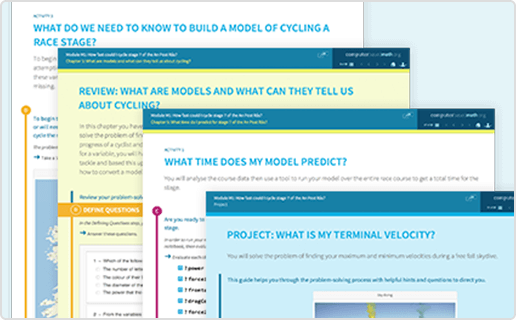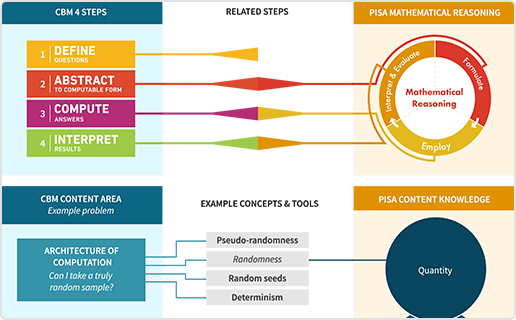Ways we can help
We offer a set of pioneering initiatives to increase the use of computational thinking (CT) for problem-solving at all levels and in all sectors. This includes ready-made courses and materials for professionals—with or without a technical education—colleges, schools and students. We are also the foremost organization for advising policymakers and governments on reform of educational systems and building new curricula to empower the next generation with computational thinking.
Educational policymakers
Implementing computational thinking: essential in preparing all students for later life
We are unique in defining and delivering the required core CT educational subject, including how it relates to math, coding and other STEM subjects. Because our approach is unprecedented in bridging between the complexities of real-life problems and the use of computation, we enable the use of computational thinking in many other subjects too—for example, supporting the fields of computational history, computational English and computational biology. We are ready to implement CT now—recognized worldwide as uniquely enabling policymakers to go end to end from concept through to delivery on the front line, all in one coordinated but flexible package that supports both novice and advanced teachers working with all abilities and levels of students.
"I greatly admire your work, because it is so far ahead of the digital learning experiences that most countries offer their students."—Andreas Schleicher, Director for Education and Skills for OECD and PISA founder
Services

Curriculum analysis
We can work with your team to review your current provision including mathematics, computer science, other STEM subjects and business studies and make recommendations for CT approaches.

Introduce Wolfram EdTech into your solutions
Make access to CT more equitable. Increase access for a broad range of learners whatever their ability and to a wide range of ages with Wolfram cloud-based solutions.
EdTech home page
Ready-made and custom-built CT resources
We can deliver fully packaged, broad-based CT courses to underpin a range of study paths.

Curriculum development
We can build custom CT problem-solving modules using regionally contextualized resources specifically to meet the needs of your learners. See inside our problem-solving modules

A curriculum prepared for PISA 2025
Our modules fully cover the requirements set down by PISA in their 2025 mathematics framework. See how our curriculum compares.




